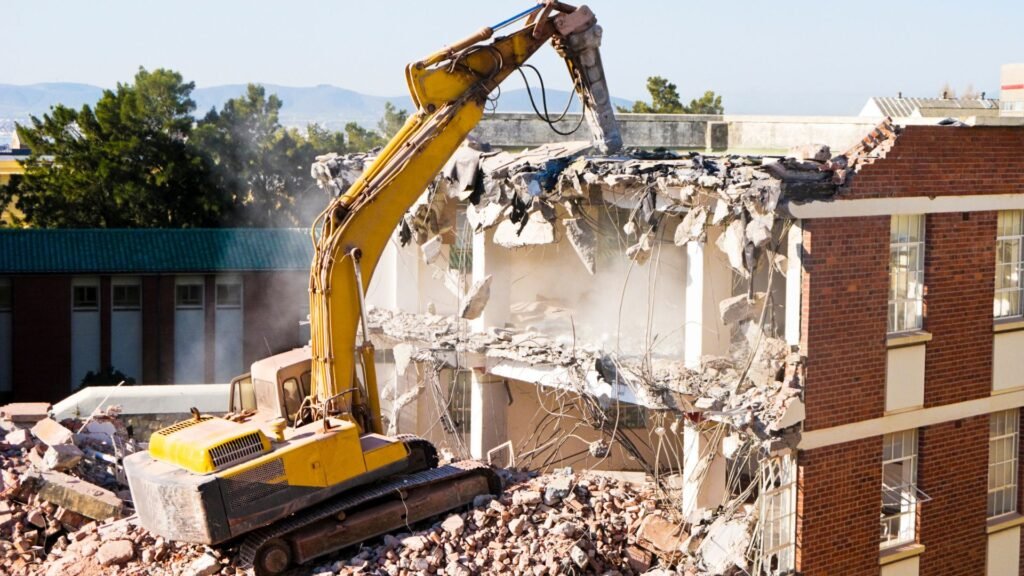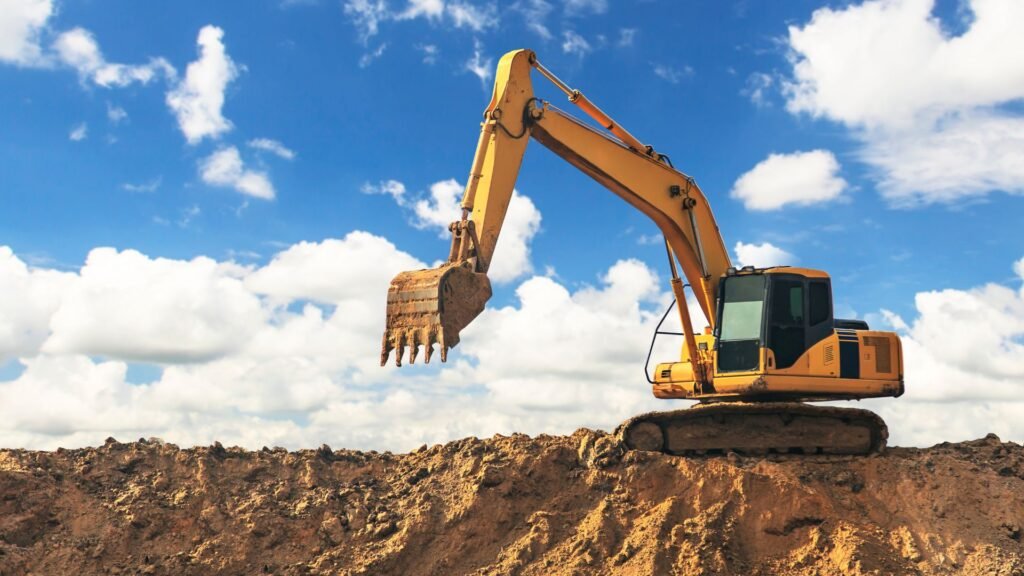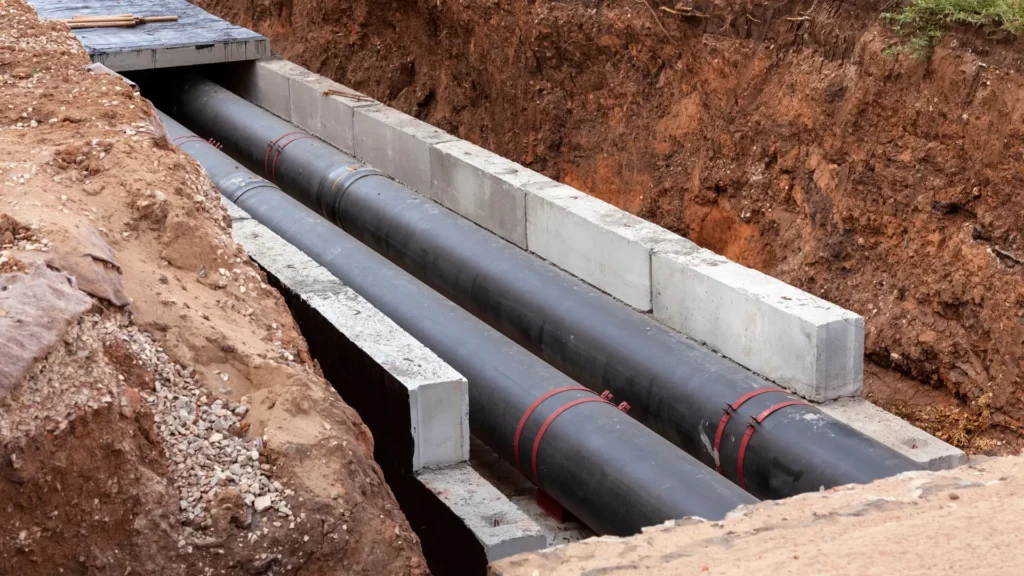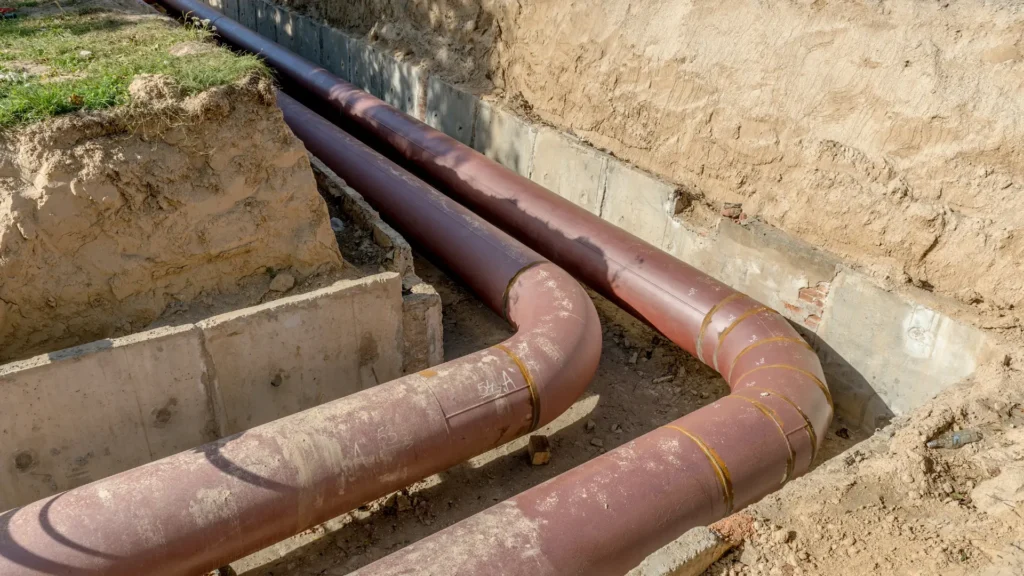Welcome to your guide on understanding the cost for demolition services in NZ, where we break down everything you need to know before starting a project. Whether you’re planning to knock down an old house, clear out a garage, or prepare land for new construction, the first question most people ask is: how much will it cost? Demolition can range from a few thousand dollars for small structures to tens of thousands for larger or more complex jobs, and knowing what drives those costs helps you plan with confidence. In this article, we’ll cover average price ranges, the main factors that affect demolition costs, extra fees to watch out for, and tips on saving money while still hiring the right contractor. By the end, you’ll have a clear idea of what to expect and how to get the best value for your demolition project in New Zealand.
The average cost for demolition services in NZ ranges from $15,000 to $30,000 for a standard house, while smaller projects like sheds or garages may cost $3,000 to $8,000. Larger or complex demolitions, such as multi-storey or commercial buildings, can exceed $50,000. Prices depend on factors like building size, materials, location, waste disposal, and permit fees.
Table of Contents
What Are Demolition Services?
Demolition services are professional solutions for safely tearing down, dismantling, or removing structures such as houses, garages, offices, and other buildings. These projects require licensed contractors who have the right training, heavy machinery, and knowledge of safety and compliance standards. In New Zealand, demolition is not just about knocking down a building—it also involves planning, permits, and responsible waste management.
Types Of Demolition
Residential Demolition
Residential demolition covers houses, sheds, garages, and other domestic structures. Property owners often request these services when renovating, rebuilding, or clearing unsafe or damaged dwellings.
Commercial Demolition
Commercial demolition applies to shops, offices, warehouses, and small commercial sites. These jobs are usually larger and can involve stricter safety measures, traffic management in urban areas, and the removal of hazardous materials.
Partial Vs. Complete Demolition
Partial demolition focuses on removing only part of a structure, such as a wall, room, or garage. It is common in renovations and extensions. Complete demolition clears the entire property, often in preparation for new construction or redevelopment.
Why People Need Demolition Services
Property owners in New Zealand use demolition services for several reasons. Some want to clear outdated or unsafe buildings to create space for new projects. Others aim to increase land value or repurpose a site for residential or commercial use. In many cases, demolition is the first important step toward starting a fresh build or transforming a property.
By understanding what demolition services involve and the different types available, you can make informed choices about which option best suits your project. Whether it’s a small shed removal or a large-scale commercial job, professional demolition ensures safety, compliance, and a smooth start to your new plans.
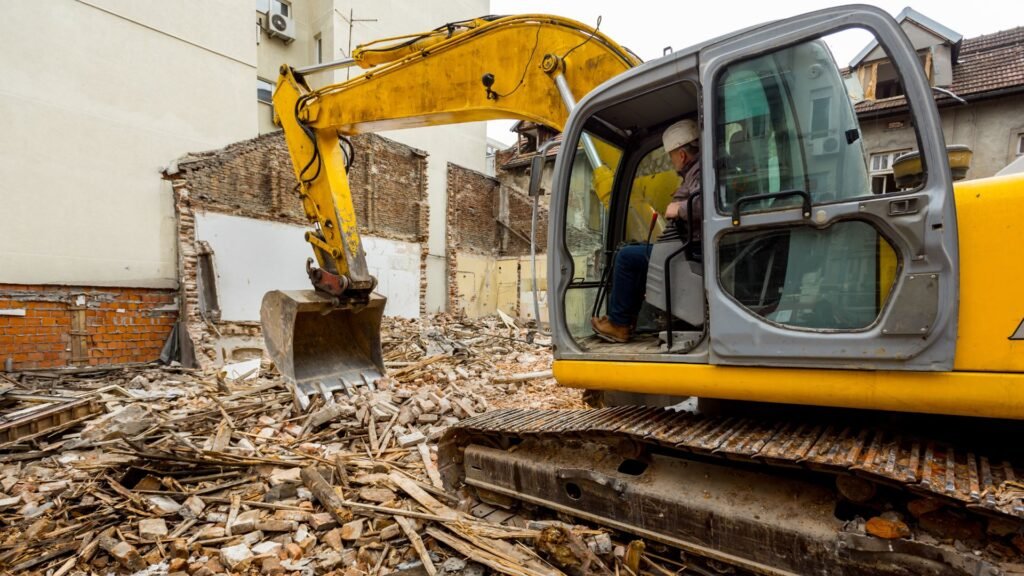
Average Cost For Demolition Services In NZ
When planning a demolition project, one of the first questions most people ask is: how much will it cost? The cost for demolition services in NZ can vary depending on the type of structure, its size, and several other influencing factors such as materials, location, and site accessibility. Below is a breakdown of typical cost ranges:
Small Projects (Garages, Sheds)
- Average cost: NZD $3,000–$8,000
- Usually simpler and quicker jobs
- Costs can increase if the site is difficult to access or requires extra debris removal
Average House Demolition
- Average cost: NZD $15,000–$30,000+
- Includes utility disconnection, council permits, and debris disposal
- Larger homes or houses built with heavy materials like brick or concrete often sit at the higher end
Larger Or Commercial Buildings
- Average cost: NZD $50,000+
- Includes multi-storey buildings, offices, and industrial structures
- Projects with asbestos or hazardous materials require specialized handling, which raises costs
Cost Per Square Metre
- Typical range: NZD $40–$90 per square metre
- Provides a useful guide for projects that do not fall neatly into one category
- Varies depending on building materials and complexity of the job
No two demolition projects are the same. The final cost for demolition services in NZ depends on your property’s size, materials, and site conditions. Getting detailed quotes from several contractors will give you a more accurate picture and help you plan effectively.
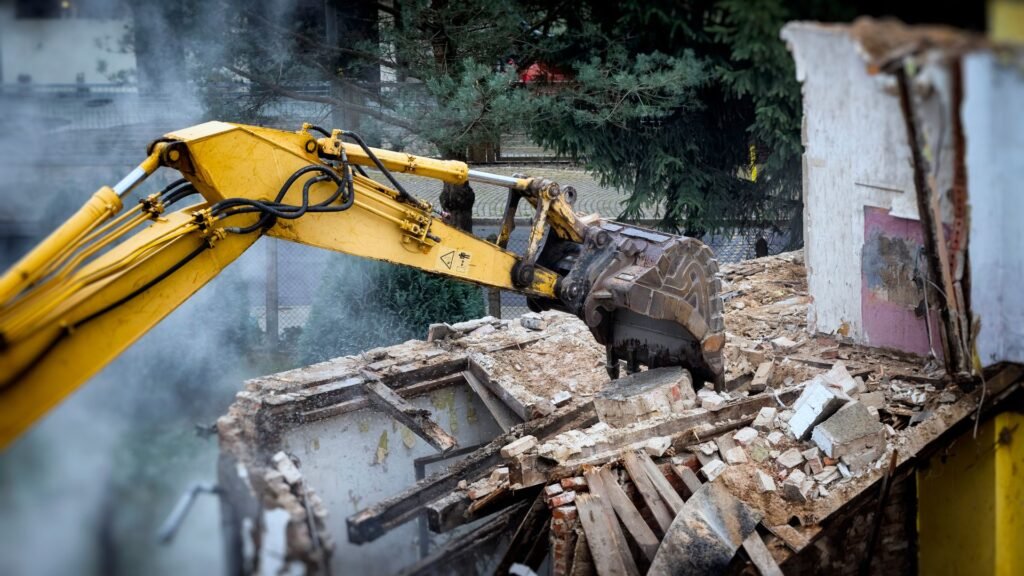
Key Factors That Influence Demolition Costs
When looking at the cost for demolition services in NZ, there isn’t a single flat rate that applies to every project. The final price depends on a variety of factors that can raise or lower the overall cost. Below are the main considerations homeowners and property developers need to be aware of when planning a demolition project.
Size And Type Of Structure
The size of the building is one of the most important cost drivers. Smaller structures like sheds or garages are relatively affordable, with prices starting around $3,000 to $8,000. A standard single-story home typically falls between $15,000 and $30,000, while multi-storey or large commercial demolitions can cost far more due to increased labour and machinery needs. For example: a small timber shed in Hamilton could cost $3,000 to clear, while a concrete home in central Auckland could exceed $30,000.
Materials Used
The type of materials used in the building affects both the time and cost of demolition. Timber homes are usually less expensive to take down compared to brick or reinforced concrete properties. Buildings with asbestos materials require special removal processes, which can significantly raise the overall budget.
Location And Accessibility
Where the property is located makes a difference. Urban demolitions in busy areas often cost more because contractors may face traffic restrictions, limited parking, or tight access for heavy machinery. Rural demolitions may save on congestion challenges but add transport and disposal fees if the site is far from a landfill or recycling facility.
Waste Disposal And Recycling Fees
All demolition projects create waste that must be disposed of legally. Landfill and recycling fees vary across New Zealand, and the larger the structure, the more debris there is to handle. On the positive side, some contractors can reduce costs by salvaging materials such as timber, bricks, or metal, providing credits against the total bill.
Hazardous Materials Removal
Older buildings in NZ may contain asbestos, lead paint, or other hazardous materials. These substances must be removed by licensed specialists, which adds to the timeline and the budget. Asbestos removal alone can cost several thousand dollars, depending on how much material is present in the property.
Permit And Compliance Costs
Local councils usually require demolition permits to ensure the project meets safety and environmental standards. Permit fees vary depending on the council, but they are a necessary cost that cannot be ignored. Failing to secure proper approval can result in fines and delays.
Labour And Equipment
The type of labour and equipment required will influence the cost. Simple demolitions on smaller timber homes might be handled with lighter equipment, while large concrete buildings demand heavy machinery and more workers. The more complex the project, the higher the labour and equipment costs will be.
Taking these factors into account helps explain why demolition prices vary so widely across New Zealand. By understanding what drives the cost for demolition services in NZ, property owners can budget more accurately and avoid unexpected surprises.
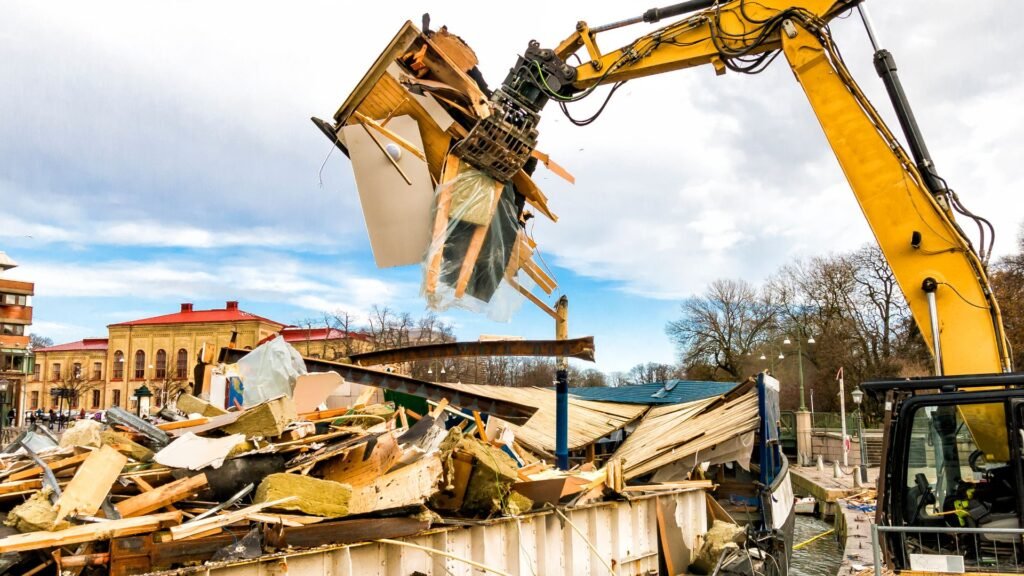
Additional Costs To Watch Out For
When budgeting for the cost for demolition services in NZ, it’s important to remember that the quoted price often covers only the core demolition work. Many projects come with extra expenses that can catch homeowners and property developers off guard. Being aware of these costs upfront allows you to plan better and avoid unexpected financial stress.
Site Preparation Before Demolition
Before machinery or crews arrive, the site must be prepared. Preparation can include securing the area with fencing, removing any remaining furniture or belongings, and ensuring the structure is safe to work on. These steps are necessary to keep workers and neighbors protected and to comply with local safety standards.
Utility Disconnection Fees: Gas, Electricity, Water
All services connected to the property need to be safely disconnected before demolition begins. Utility companies typically charge fees to shut off gas, electricity, and water. These costs may vary depending on your location and the type of property, but they are essential for safety and cannot be skipped.
Tree Or Vegetation Clearing
If there are large trees, shrubs, or overgrown vegetation on the site, they may need to be removed before demolition can proceed. Tree removal often requires specialized equipment and skilled contractors, especially if the vegetation is close to buildings or power lines.
Site Levelling Or Excavation Post-Demolition
After a building is demolished, the land often needs to be levelled. If you are planning new construction, additional excavation may be required to prepare foundations. These services add to the total cost and are best discussed with your contractor before the demolition begins.
Transporting Debris To Landfill Or Recycling Centres
Demolition produces a significant amount of waste, including timber, concrete, metal, and general debris. Transporting this material to landfills or recycling facilities is usually billed separately. Some contractors include it in their estimates, while others treat it as an add-on. Recycling materials can sometimes reduce costs if valuable resources like steel or timber are salvaged.
By considering these additional costs, you can create a more accurate demolition budget. Planning ahead for site preparation, utility disconnections, vegetation clearing, levelling, and waste disposal ensures that your project runs smoothly without unexpected delays or expenses.
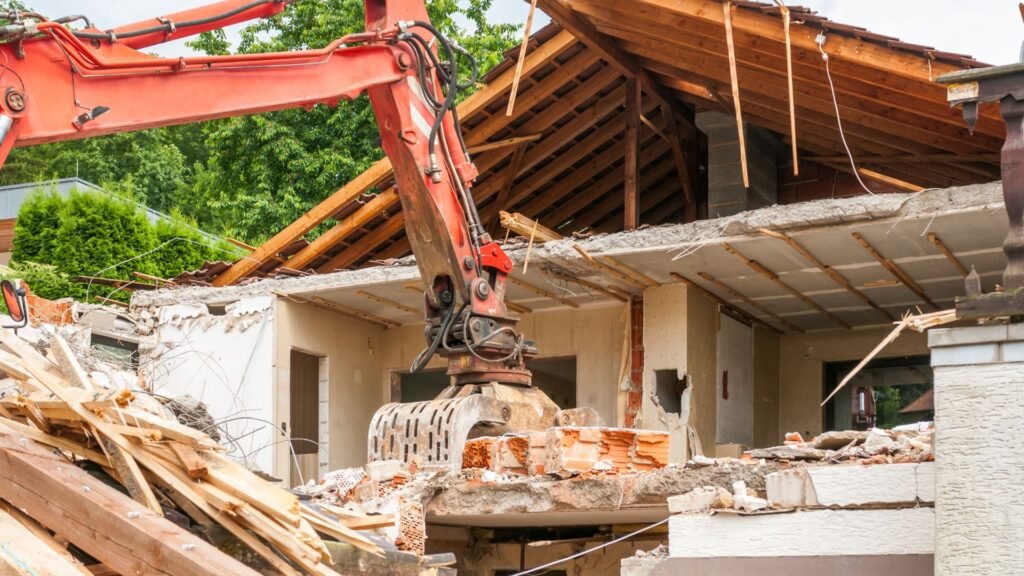
How To Save On Demolition Costs
Demolition work in New Zealand can be expensive, but there are practical steps you can take to reduce overall costs without sacrificing quality or safety. Careful planning and smart decisions before hiring a contractor can make a noticeable difference in your budget. Here are key ways to save money on demolition services:
- Compare quotes from multiple NZ demolition contractors: Always request detailed quotes from at least three different demolition companies. This allows you to see variations in pricing, what services are included, and whether additional fees such as waste disposal or permit handling are part of the estimate. Comparing multiple offers ensures you get the best value for your project.
- Ask about recycling and salvage credits: Many demolition materials such as timber, bricks, metal, and concrete can be salvaged or recycled. Some contractors offer credits or discounts if they can resell or recycle these materials. This not only reduces your overall demolition bill but also helps lower the amount of waste going to landfill.
- Check if partial demolition is an option: Instead of removing an entire structure, partial demolition may be more cost-effective if you only need to clear a section for renovations or extensions. This approach reduces labour and disposal costs while preserving usable parts of the building.
- Time the project during off-peak seasons: Contractors often have busy and slow periods throughout the year. Scheduling your demolition during a quieter season can sometimes lead to lower rates, as companies may offer discounts to secure work during slower months.
- Make sure permits and paperwork are sorted upfront: Delays in paperwork or missing permits can add unnecessary costs to a demolition project. Confirm with your local council about all necessary approvals and fees before work begins. By having everything ready in advance, you avoid project delays and potential fines.
Taking these steps not only helps you manage demolition costs more effectively but also ensures that the project runs smoothly from start to finish. With the right planning and contractor, you can complete your demolition in New Zealand without overspending.
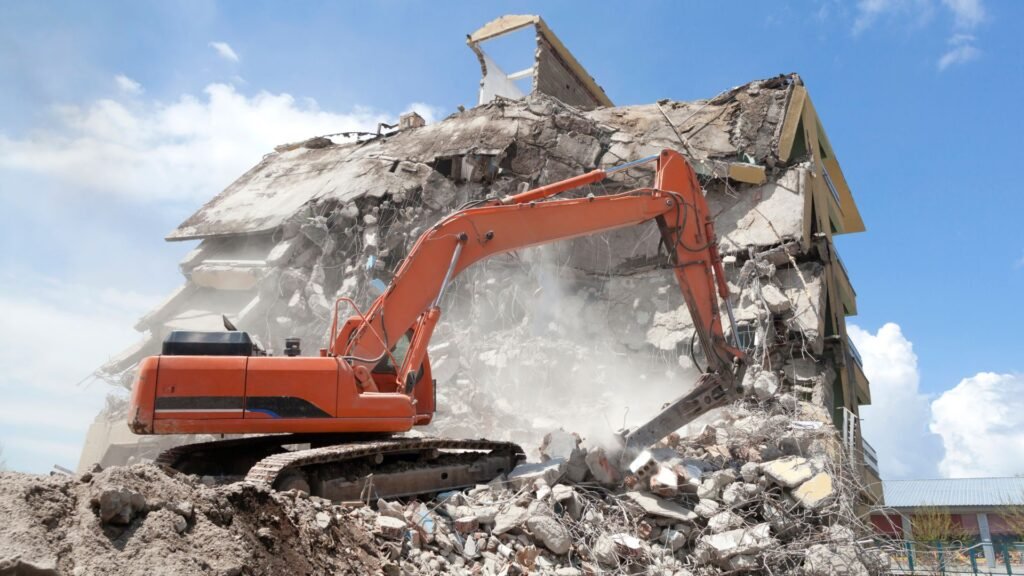
Choosing The Right Demolition Contractor In NZ
Finding the right demolition contractor is one of the most important steps in managing your project and keeping costs under control. The cost for demolition services NZ homeowners or business owners face can vary widely, but choosing a qualified professional ensures you get value for your money and avoid expensive mistakes.
When comparing contractors, always check for licensing, insurance, and a proven safety record. Licensed contractors are held to industry standards and must follow specific guidelines that protect both you and your property. Insurance is equally important because it covers potential damages or accidents that may occur during the demolition process. A contractor with a strong safety record also shows that they prioritize worker wellbeing and compliance with local laws.
Council approvals and compliance are another area you cannot overlook. In New Zealand, most demolitions require permits, and your contractor should be familiar with local council processes. A reliable professional will handle the paperwork for you and make sure all regulations are followed, preventing costly delays or legal issues later on.
Asking for references or past project photos gives you real proof of a contractor’s work quality. A trustworthy company will happily provide this information, and it can give you confidence in their ability to complete your demolition safely and efficiently. It also helps you compare contractors beyond just their quotes.
Be aware of warning signs that suggest an unreliable contractor. These include vague quotes with hidden costs, lack of insurance, no proof of licensing, and reluctance to provide references. Choosing the cheapest option may seem tempting, but it often leads to unexpected expenses and poor results.
By carefully reviewing these points, you can connect the cost for demolition services NZ offers with the peace of mind that comes from hiring the right professional. A qualified contractor not only helps you stay within budget but also ensures your project runs smoothly from start to finish.
Looking to start your demolition project? Get a clear, accurate quote from trusted experts today—visit our homepage to connect with demolition contractors in NZ and find the best value for your needs.
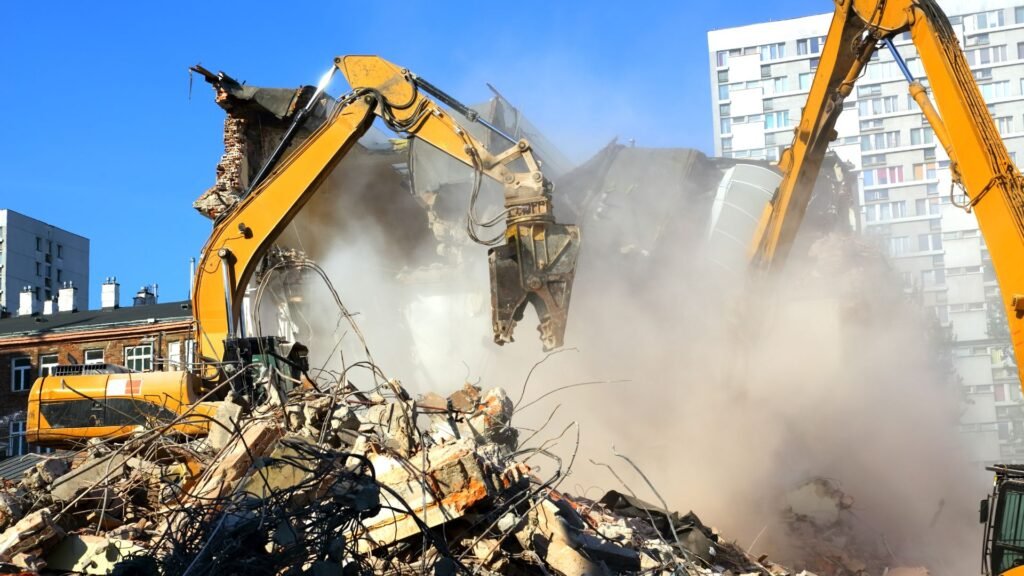
FAQs: About Cost For Demolition Services In NZ
What is the average cost for demolition services in NZ?
The average cost for demolition services in New Zealand ranges from $15,000 to $30,000 for a standard home. Smaller projects, such as sheds or garages, can cost between $3,000 and $8,000, while large commercial demolitions can exceed $50,000.
What factors affect the cost of demolition in NZ?
Key factors include the size of the building, type of materials, location, accessibility, disposal fees, presence of hazardous materials like asbestos, and council permits.
Do I need council approval for a demolition project?
Yes, most demolitions in New Zealand require council consent. This ensures the work complies with local regulations and safety standards. Permit fees vary by region and add to overall project costs.
How long does a typical house demolition take?
A standard residential demolition usually takes one to two weeks, depending on the size of the property, site accessibility, and whether hazardous material removal is required.
What extra costs should I budget for?
In addition to contractor fees, you may need to cover utility disconnections, asbestos removal, site clearance, waste disposal, tree removal, and site preparation for new construction.
Can I save money on demolition services in NZ?
Yes. You can save by comparing quotes from multiple contractors, recycling or salvaging materials for credit, scheduling during less busy times, and ensuring all permits are secured upfront.
Who handles asbestos removal during demolition?
Licensed contractors are required to manage asbestos removal in New Zealand. This service is usually separate from general demolition and can significantly increase costs.
Is it possible to do a partial demolition instead of a full one?
Yes, partial demolitions are common for renovations or extensions. They are often cheaper than full demolitions but still require professional contractors and council approval.
What should I look for when hiring a demolition contractor?
Check for proper licensing, insurance, safety compliance, council approvals, and past project experience. Reliable contractors should provide clear quotes and references.
Can I stay in my house during the demolition process?
No. For safety reasons, residents cannot stay in a property during demolition. Contractors use heavy machinery and hazardous material handling, making it unsafe to occupy the site.
Conclusion
The cost for demolition services in NZ can vary widely depending on the size of the structure, the materials involved, site accessibility, and additional requirements such as permits or hazardous material removal, but with proper planning you can avoid unexpected expenses and keep your project on track. Taking the time to research, understand cost factors, and compare detailed quotes from trusted demolition contractors ensures that you get accurate pricing and reliable service without hidden fees. Every project is unique, which is why gathering multiple estimates allows you to find the best value and select a contractor who meets both your budget and safety expectations. If you’re considering demolition, compare costs today to find the best value for your project.

